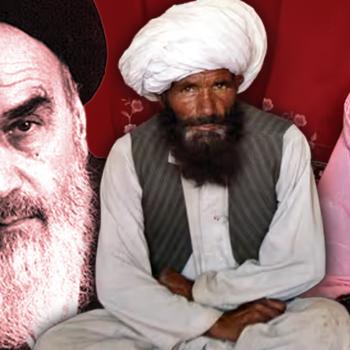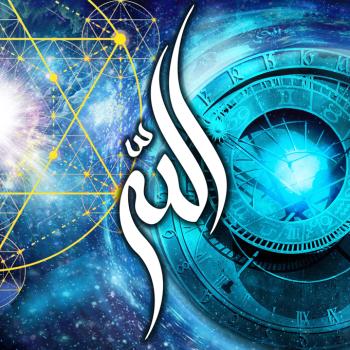Speaking of Iran…
I thought I’d share a curiously polemical observation that I came across in the foreword to Richard Joseph McCarthy’s otherwise invaluable annotated 1980 translation of Imam Al Ghazzali’s al-Munqidh min al-Dalal (Delieverance from Error), entitled Freedom and Fulfillment (recently reprinted by Fons Vitae).
The editor of the book series (i.e., not the author), a Harvard professor, concluded the foreword as follows (emphasis added):
The present volume was prepared for press during the weeks of the Islamic Revolution in Iran. The religious frenzy of the masses, stirred up by the "holy man", the Ayatullah Ruhullah Khomeini, bewildered the Western observer who watched millions of men and women follow him as if in a trance, unquestioning, declaring themselves willing to die for him and the cause he represented. We wondered whence he received this power–not only over the masses, but for himself. Perhaps the following pages, transmitting the thought of a twelfth-century Muslim spiritual leader–philosopher as well as mystic–may help to explain in a certain measure the phenomenon of Muslim spirituality in the twentieth-century world, the differences between Ghazali’s Sunni convictions and the Ayatullah’s Shi’ism notwithstanding.
However, in this instance, "tout comprendre" [to understand everything -Svend] is not "tout pardonner".
As Mr. Spock used to say, fascinating. Where does one begin? That short paragraph is a bountiful smorgasbord of scholarly Freudian slips and self-indicting stereotypes about irrational "natives". And it was being put forward by a respected scholar of Islam close to the end of the 20th century.
The political bias is so obvious here as to barely require commentary. This scholar sounds so "embedded" in the American foreign policy of the day that any challenge to an America ally–Iran under the Shah was then one of Washington’s "Twin Pillars" in the fight against Communism in the Middle East–was by definition uncivilized and immoral. Even if said government had tyrranized and butchered its own people.
What is more interesting and ironic is the negative assessment that is being made from a philosophical and cultural standpoint. Implicit in this jibe is the assumption that Khomeini self-evidently lacked the genteel sophistication and intellectual depth of Imam Al-Ghazzali. Khomeini’s mindset and influence, the writer implies, are a manifestation of how far Islamic thought has sunk since in modern times.
Whatever one thinks of Khomeini’s legacy and political leadership–my opinions are rather mixed–the contrast of him as a political idealogue to Al-Ghazzali as a cerebral thinker and mystic is nonsensical, as contrary to his fierce image as a simple-minded zealot in the West Khomeini was himself a sophisticated mystical theologian in his own right.
Ted Thornton Revivalism Iran’s Ayatollah Ruhollah Khomeini, 1902-1989:
Growing up intelligent and introverted in a climate where the
religious establishment was losing ground in the face of modernist
secular challenges, Khomeini took refuge in mysticism, especially in
the works of Ibn Arabi and Rumi and their notion of the "Perfect Man"
who will guide society from multiplicity to unity, from blasphemy to
faith and from corruption to a life of absolute perfection. […] So preoccupied did
he become with his mission that after the revolution, officials who
came to see him often left complaining that he had no time or patience
for real people with real problems.
The actual book, it should be noted, is extremely respectful and well informed. Father McCarthy is innocent of these anachronistic prejudices, and even critiques some uncharitable theories and readings of Imam Ghazzali’s work that had been put forward by other non-Muslim scholars in his day.















